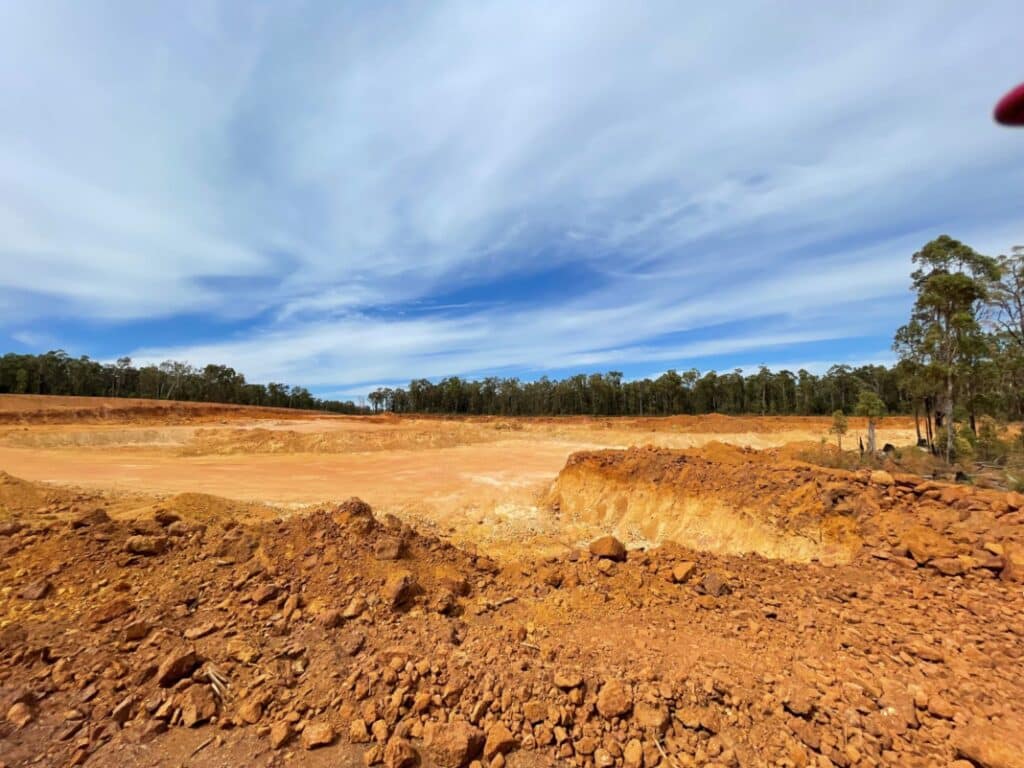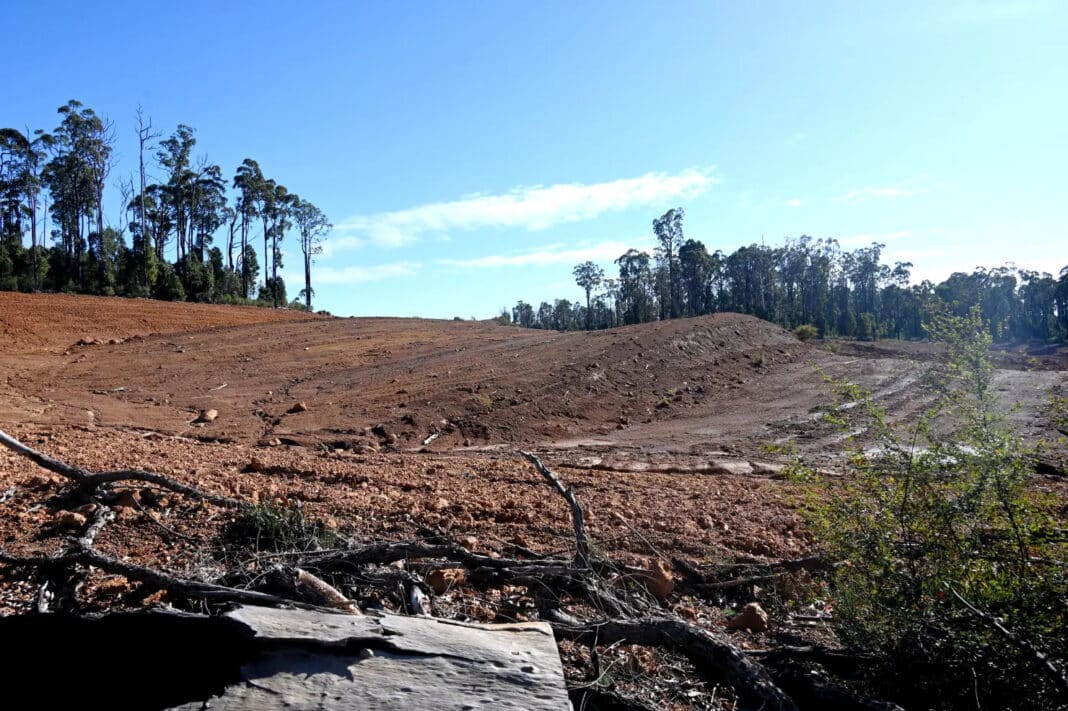A botanist who supplied one of WA’s largest miners with seeds to rehabilitate Jarrah forests has raised concerns over the condition of the forest as waning research efforts and increasing production demands trump ecological responsibility.
Speaking to WAToday, botanist Keith Smith supplied seedlings for the degraded Jarrah Forest across the Darling 30 years ago, steadfast in his belief that he was making a difference.
Smith, who has supplied the seed to aid that rehabilitation effort, told WAtoday that standards had slipped, with a shrinking number of species used and the topsoil quality at times left to decline in ageing stockpiles.
“The speed at which they cleared Marradong forest within the past decade was just phenomenal,” he said.
“It’s devastating to see the destruction … the biodiversity in the forests out here cannot be duplicated.”

Smith said it appeared plants were stunted in long-term growth, unable to penetrate the clay layer or suffering stress due to the changing soil profile, something of particular concern in the face of a drying climate.
If anything, Smith said the freshly rehabilitated areas had only seeded doubt about the company’s ability to restore the forest disappearing on its watch fully.
South32 has been mining bauxite in Boddington since the mid-1980s under a special state agreement, clearing thousands of hectares of land 130 kilometres southeast of Perth for the world’s primary source of aluminium.
Today the integrated Worsley Alumina mine and refinery operation ranks among the largest in the world, employing more than 2000 people and pumping millions into the local economy.

But with gaping red holes in the otherwise lush green landscape surrounding the small town of Boddington, South32 has also had to make its rehabilitation work its trademark.
Over the past few decades, South32 has rehabilitated 3200 hectares by returning the removed topsoil and replanting trees across old mining areas. The company also bought up land with similar values as an offset.
A South32 spokesperson fiercely defended the company’s environmental record, telling WAtoday it had passed both state and federal approvals processes and done everything possible to safeguard the area’s natural resources, sponsoring and conducting research and adjusting its species composition to yield the best results.
“We have and will continually and concurrently rehabilitate land that we do clear to minimise open areas and help to re-establish flora and fauna habitat,” the spokesperson said.
- Wood Central has provided a copy of South32’s environmental commitments here.
But it’s something WAtoday can reveal is already on the regulator’s radar, as the Department of Water and Environmental Regulation has launched an audit of the ministerial statements under which the miner operates.
And that probe includes a review of the rehabilitation requirements.
Strip Mining of Jarrah favoured over Sustainable Forest Management
In May, Wood Central reported on claims that US aluminium production giant Alcoa had failed to rehabilitate almost 28,000 hectares of Western Australian forest fully.
Jess Beckerling, director of the non-profit conservation group WA Forest Alliance, said a recent WA department finding that there was a lack of any completed rehabilitation was a shocking indictment of Alcoa’s attitude to the forest.
“The community is getting wise to this sort of cynical greenwashing, and Alcoa’s reputation and social licence to operate have taken a serious hit,” Ms Beckerling told WAToday.

Conflicting definitions of rehabilitation by Alcoa and the government muddy the discrepancy between Alcoa’s claims and what it has achieved.
“The rehabilitation results have been woeful,” says Gavin Butcher, industry analyst and a WA Forest Products Commission director for more than 20 years.
“The species diversity is very weak, and as such, the understorey is made up of only a couple of species when the previous forest had been enormously rich,” Mr Butcher said.
Gavin Butcher regularly contributed to the publication and recently covered the WA Logging Ban for Wood Central.
“It is true that Alcoa has achieved the inputs to affect rehabilitation, but alas, none of the outcomes is satisfactory.
“It is quite clear from science published that maintaining the industry at its current level is not a threat and could be beneficial in thinning the forests.
“The current approach where the only timber provided will be sourced from mine clearing demonstrates the perversity of the government’s approach,” he said.
Alcoa and Rio Tinto vow to stay clear of Jarrah in the Dwellingup region.
In mid-June, Alcoa vowed not to touch an 8300-hectare area of Jarrah Forest southeast of Pinjarra amid mounting pressure to improve its environmental record.
Alcoa Australia president Matt Reed said it was an important step in protecting the environment.
“We hope this decision provides greater certainty about our intentions in a prospective mineral area and demonstrates our willingness to protect important environmental and social values,” Mr Reed said.
It coincides with Rio Tinto, which cancelled its permit over 107,000 hectares of Jarrah last month as it mined for lithium and nickel.
“Rio Tinto is in the process of withdrawing its applications for exploration licences in the South-West of Western Australia,” a company spokesperson told ABC News.
“This decision has been made for a number of reasons, including in response to concerns raised by local communities.”
The exploration licences had been fiercely opposed by local shires and community groups, making it one of the most highly contested matters before the Warden’s Court.
The court heard there were 1,500 separate objections to the ten tenements.
Shire of Waroona President Mike Walmsley welcomed the decision and said the Northern Jarrah Forest needed to be protected.
“It’s a good outcome that the companies listen to community concern, and they’ve decided to withdraw,” he said.

Now, the pressure is on South32 to follow suit
WAToday reports that South32 remains committed to delivering a project which involves clearing 4,399 ha of Northern Jarrah Forest for bauxite mining.
Mia Davies, Member for the Central Wheatbelt and opposition mining spokeswoman, who has met with concerned constituents, said the alarm was understandable under a state government vowing to stop native forest logging in one breath and allowing it to continue under certain conditions in another.
“The government and industry both have a responsibility to provide an assurance and evidence that the conditions prescribed for South32, and any other mining activity, are being met,” she said.
“I support the sustainable management of plantation and native forests through logging and silviculture practices, and if done properly, endangered species, old-growth trees and wildlife are preserved for future generations.”
This is supported by forester Paul Ryan, who has accumulated more than 40 years of professional forestry experience, mostly in the Asia-Pacific and African regions:
“The need for trees or ‘forests’ is becoming more critical as urban expansion creates heat sinks, while trees, on the other hand, provide up to 4 deg. lower temps and help remove some of the air pollutions, and provide several other benefits.”
“I feel part of the problem continues to be a lack of education about forestry, although some may not wish to listen.”
For Smith, the thought of what might be left for future generations fuels his push for change.
“I believe the next generations will look back in time with disgust at what has been allowed to happen, what we have lost,” he said.
“They’ve cleared so much, so quick; if we don’t stand up if we remain silent, the biodiversity of species in Boddington will be gone; it’s becoming a social license issue.”






